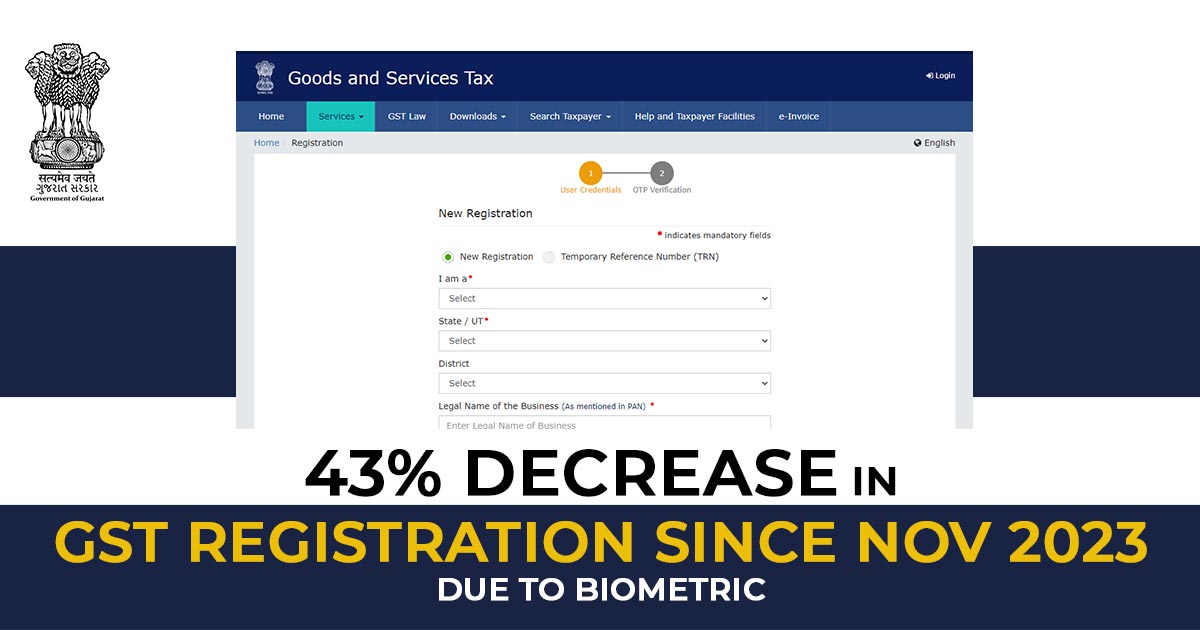
The state goods and services tax agency in significant revisions has witnessed an average 43% decrease in GSTIN applications submitted monthly since Nov 2023, when the new sort of authentication was added to the process of online registration.
The average number of GSTIN (Goods and Services Tax Identification Number) applications received per month from November last year to February this year fell from 26,800 to 15,350.
The same drop does not result in a recession or fewer companies opening however the state government’s initiative to fight bogus billing at the source. The trial scheme needs biometric GSTIN applicant’s verification, preventing bogus applications.
An influential decrease in the number of applications will result from the same procedure the state officials mentioned.
In November 2023 this project will be launched, aiming to enhance the security and efficiency of the registration procedure. An identical pilot project is being brought in Andhra Pradesh and Puducherry.
“The typical method in a fake billing fraud is to obtain a fake GST registration by duping innocent persons. The GSTINs of such fraudulent entities, which exist only on paper, are then utilized to create fake bills and receive input tax credit despite no actual movement of products,” a senior SGST official cited.
“Individuals reported unauthorised use of their bank and identity documents for such registrations,” he added.
Gujarat has been battling with the rising problem issue of fake billing. With the enactment of GST, the Gujarat government has lost Rs 11,443 crore due to fake billing scams involving tax evasion.
The total turnover from fake GST billing has been approximately Rs 1 lakh crore, with the enactment of the new regime.
“The new system requires applicants to give a thumb impression and many identification proofs throughout the registration procedure. This step is aimed at checking the applicant’s validity. Additionally, GST applicants may be summoned for further verification if necessary in the future,” a GST official quoted.
The execution of the biometric verification is anticipated to minimise bogus activity by ensuring that GST registrations are just furnished before the eligible applicants.









